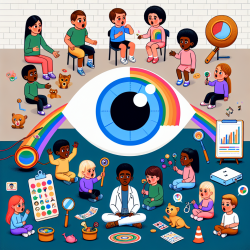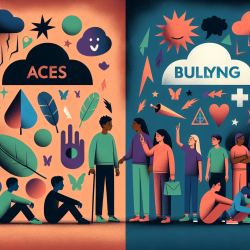As a Special Education Director, the responsibility of navigating the labyrinthine challenges of ensuring both the safety and mental health of our students can sometimes feel overwhelming. The weight of this responsibility is not lost on us, especially in an era where the educational landscape is constantly shifting. Our goal is not only to educate but to create an environment where our students can thrive, feeling secure and supported. In this journey, the emergence of online therapy services, such as online speech therapy, has been a beacon of hope and innovation.
The paramount importance of safety within our schools cannot be overstated. It is the foundation upon which all educational endeavors must be built. Safety, in this context, transcends physical well-being to encompass the mental and emotional health of our students. This holistic approach to safety is crucial for the special education population, where the vulnerabilities are not just physical but deeply intertwined with cognitive and emotional needs.
Amidst these considerations, the mental health of our students has surged to the forefront of our priorities. The intricate relationship between learning disabilities, speech impediments, and mental health challenges is well-documented. Students struggling with communication are at a higher risk of experiencing frustration, isolation, and low self-esteem, which can precipitate or exacerbate mental health issues. This reality makes the integration of services like online speech therapy not just beneficial but essential.
Online therapy services have revolutionized the way we address these challenges. They offer a flexible, accessible, and often less intimidating environment for students to work on their speech and communication skills. For many students, the comfort of engaging in therapy from a familiar environment can significantly reduce anxiety, which is a common barrier to effective learning and therapy. Furthermore, online therapy services have been instrumental in bridging therapist staffing shortages, a persistent challenge that many districts face.
However, the adoption of online therapy services is not without its hurdles. Ensuring the safety and privacy of our students online is a paramount concern. As leaders, it is our duty to vet these services meticulously, ensuring they comply with all relevant legal standards, such as the Family Educational Rights and Privacy Act (FERPA) and the Health Insurance Portability and Accountability Act (HIPAA). Additionally, it is crucial to provide ongoing training for staff and educators on the safe and effective use of these technologies.
The impact of these services on mental health cannot be understated. By providing consistent, tailored support, online therapy services can play a significant role in improving self-esteem and social skills among our students. The positive feedback loop created by successful communication can be transformative, fostering a sense of achievement and belonging. This, in turn, lays a foundation for a safer, more inclusive school environment where every student feels valued and understood.
As we move forward, it is essential to embrace a collaborative approach. Engaging with parents, caregivers, and the wider school community is vital. Regular meetings and open lines of communication ensure that everyone is aligned in their efforts to support our students. Sharing successes and challenges not only fosters a sense of community but also drives home the point that ensuring the safety and mental health of our students is a collective responsibility.
In conclusion, as Special Education Directors, we are tasked with an immense but noble challenge. The path to ensuring the safety and mental health of our students in special education is fraught with obstacles, but it is also filled with opportunities for innovation and growth. Online therapy services, such as online speech therapy, represent a significant step forward in our ongoing mission. By embracing these tools and working together as a community, we can create an educational landscape where every student has the opportunity to thrive, both academically and emotionally.
Let us be inspired by the possibilities that lie ahead. The journey may be complex, but the outcome—a safer, more inclusive educational environment for all—is undoubtedly worth the effort.










